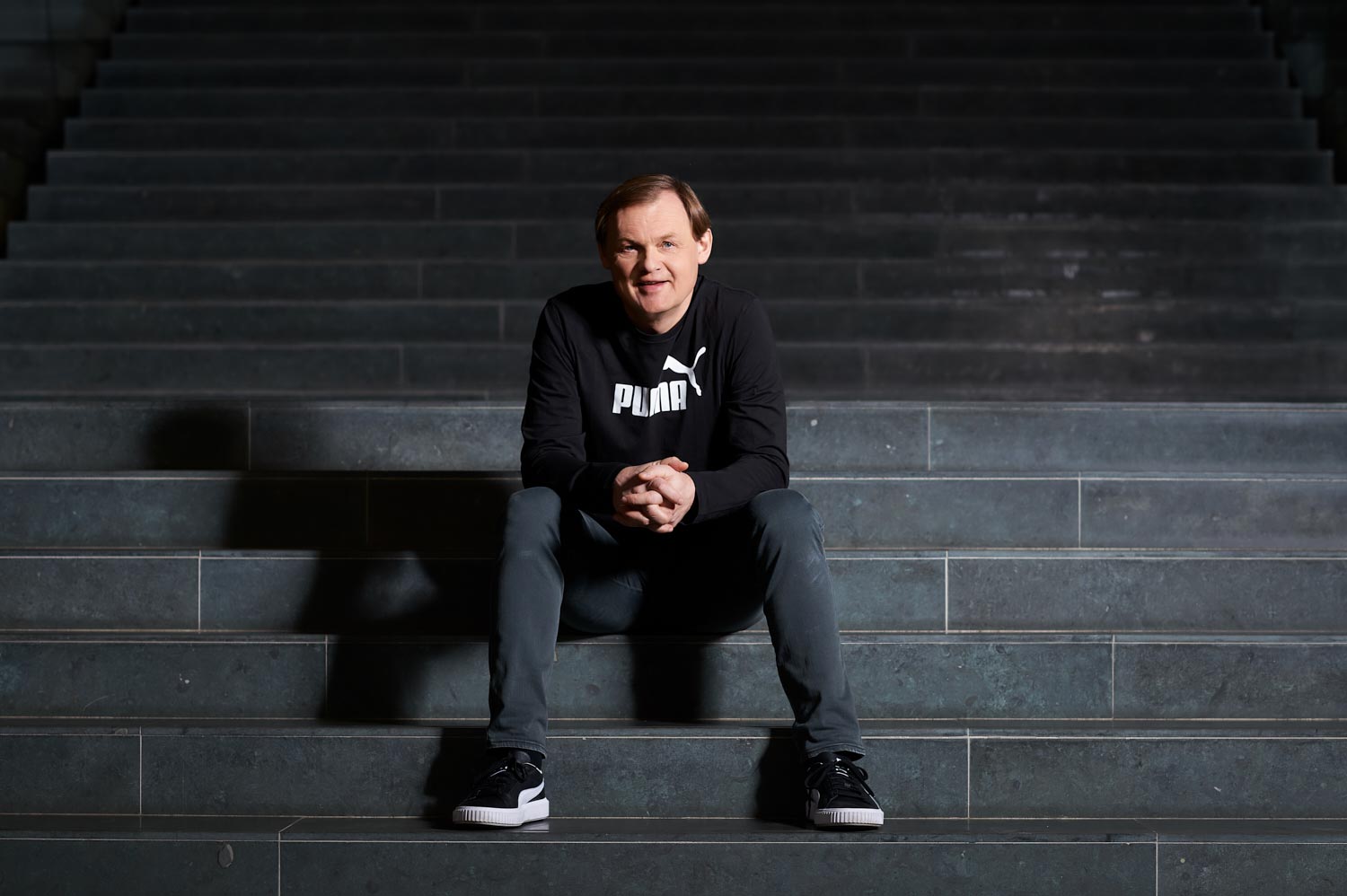
I hope this letter finds you healthy
and in good spirit despite all the negative impact of
COVID-19. 2020 was surely a very difficult year for all of us - for me it was definitely
the most difficult year in my life.
We started the year 2020 with a very positive feeling: we had a very solid order book, our sales at the end of 2019 were strong, our new products were very well received and the start in January was also positive.
Then COVID-19 hit the city of Wuhan in China and we immediately set our focus on securing our supply chain as approx. 30% of our sourcing is done in the country as well as on reducing the damage from the “shutdown” of physical retail in China. During the first two weeks, we did not even think that this would turn into a global pandemic.
It then became obvious that COVID-19 was unfortunately spreading globally and that we were in a situation we had never been in before. We were in the middle of a worldwide pandemic in which basically all physical retail stores selling sports and sports-inspired products had to shut down globally during the months of March and April.
Back then we quickly focused on three main areas: Deal with COVID, continue to drive the business and continue to do the right thing, such as focusing on Sustainability and #REFORM.
Deal with COVID meant first and foremost to ensure the health and safety of our people. Among other things, this included the following measures: organize work from home wherever possible, set up digital communication tools, buy and distribute masks for our employees, organize regular testing (PCR and Quick Tests), sanitize our working spaces on a regular basis, install health and safety equipment in all our stores and in general do whatever we could to ensure that our PUMA employees felt as good and safe as possible. I am very proud of how our People & Organization teams (previously called Human Resources) around the world worked and organized all these measures. So far, we have been lucky: none of our almost 16,000 employees has died of COVID-19 and “only” four colleagues were hospitalized, but recovered 100% and are fully back to work.
The second priority was to secure financing and liquidity. The uncertainty around the pandemic and its impact on our business has made us act quickly to secure as much financing as possible. We did not know if the lockdowns would last one month, two months or even longer. We prepared for a “worst case scenario” of a four-month lockdown and managed to get financing that would “keep us alive” throughout this period. A consortium of twelve banks led by the German state-owned Kreditanstalt für Wiederaufbau (KfW) gave us an additional credit line of € 900 million - together with existing credit facilities this provided us with a total financing of around €1,800 million.
We never used this additional credit line and it has been replaced by other credit facilities in the meantime. The KfW-led credit line was not a “gift” by the German state. It was a regular credit line for which we paid high, above-market fees for availability and that gave the KfW preference compared to other creditors. Nevertheless, this credit line was crucial for us because it gave us security and allowed us to make sound business decisions in a time of high uncertainty. I would like to thank the KfW and the other eleven banks for their fast and unbureaucratic processes, and for making this “life insurance” available to us.
The third priority was to quickly find solutions to continue working upstream with our retail partners and downstream with our suppliers. Our objective was to avoid high cancellations that could have caused massive problems for our suppliers including the loss of thousands of jobs among their employees. We offered all our retail partners delayed deliveries and extended payment terms. We slowed down shipments, asked our suppliers to slow down their production without laying off people and to extend payment terms by one month. We agreed to hold some inventories in the factories, some in temporary warehouses in Asia and of course in our normal warehouses. Most retailers agreed to this approach and I am very proud that we managed to get through 2020 with cancelling less than 1% of our orders with our suppliers. We continue to work with all of our suppliers and none of them had to lay off workers due to the crisis.
As most physical retail stores had to shut down globally in March and April, the eCommerce channels became even more important. Our focus was to strengthen our own puma.com channel, the marketplaces, the pure eCommerce players, but also the eCommerce channels of our Brick & Mortar retail partners. This caused massive changes in our marketing activities with budget shifts to performance marketing and significant pressure on our logistics to service the increased eCommerce demand. I am very pleased on how quickly and flexible both our marketing and logistics teams acted during this turbulent time.
We also continued to drive the business during this period. This meant maximizing our sales short-term while at the same time investing into the development of new product ranges and strong marketing in order to continue the positive mid-term momentum for the brand. We did everything to please and service our retail partners in the best way possible, we rather gave deep discounts instead of building excess inventories, we continued to develop full new collections for the year 2021 and used the marketing opportunities that will benefit PUMA mid-term while we reduced our overall marketing spent. During the crisis, we signed football icon Neymar Jr., the most exciting rookie in the NBA LaMelo Ball, the currently most popular female artist Dua Lipa and the very youth culture relevant DJ Snake. All these exciting additions to the PUMA family were done because we are confident that they will further strengthen the relevance of our brand both during the pandemic and also later in the “new normal”.
I am very thankful that our supervisory board showed us their trust and support by allowing us to do these investments in the middle of the year.
We also continued to focus on what we call “do the right thing”. This includes both our social responsibility and the environmental sustainability of our business practices. We want to be a good corporate citizen and have a positive impact on our society as a whole. As part of our #REFORM platform, we focused on three main aspects: gender equality, an end to systematic racism and LGTBQ+ rights. Everybody on this planet should be treated equally and we at PUMA want to do our part to fight any form of discrimination. Sustainability also continued to be a key focus area for us, and we strive to leave the planet to our children in a better condition than we inherited it from our parents. In 2020, we launched our 10FOR25 sustainability targets which will guide our ambitious sustainability actions until 2025. We also continue to support the UN Global Compact and its 10 principles for sustainable development. We also launched multiple sustainable product collections as well as our new FOREVER BETTER communication platform. Both responsibility and sustainability are and will continue to be an important part of PUMA’s values.
After a very difficult second quarter during which most of the markets had either lockdowns or other restrictions, we experienced a very strong third quarter. In the third quarter, our Net Sales increased by 13.3% (in constant currency) to € 1,583 million – the highest revenue PUMA has ever had in a quarter – and the third quarter EBIT of € 190 million (12% of Net Sales) shows the potential of our company. The fourth quarter started with 25% growth in October before new restrictions, especially in Europe, slowed our revenue growth once again. We ended the fourth quarter with Net Sales being up 9.1% (in constant currency) and an EBIT of € 63 million (+15% vs last year).
The full financial year 2020 was “destroyed” mainly due to the terrible second quarter, but I hope that the strong second half of 2020 demonstrated the continued momentum of PUMA. We are very optimistic about the future of both the sports industry and for PUMA. During the pandemic, we have seen that the consumers continued to buy our products, queued up in front of the sneaker stores when they reopened, started to do more individual sports and we foresee team sports to “explode” again once the restrictions will be lifted. We see a continued trend for sportive casual wear both in footwear and apparel, comfort being more and more important to the consumer and sports brands still being in strong demand across all markets.
While we do not have a “crystal ball”, we clearly foresee that the pandemic will continue to have a negative impact on our business also in 2021. We believe that the negative impact will be strongest in the first half and believe that it will weaken during the second half. Given the uncertainty around the future development of the pandemic, we do not feel comfortable giving you a specific financial outlook for the full year. But as of today, we expect that 2021 will be a better financial year than 2020, both in terms of Net Sales and EBIT.
Let us hope that 2022 will be a “new normal” year.
Stay strong and stay healthy,

Bjørn Gulden
Chief Executive Officer PUMA